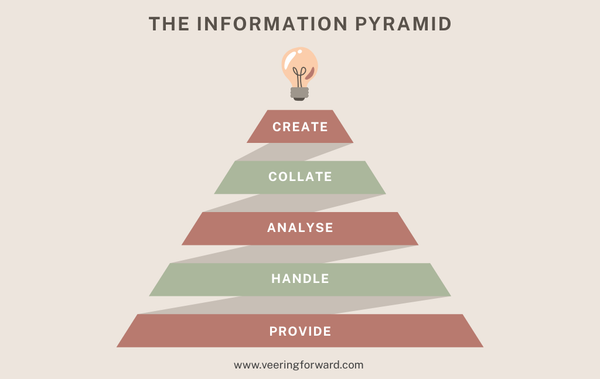The AI switch: when to turn to AI and when to DIY
How do we make AI work for us? Apply a simple framework to help us decide when using AI first will be a net benefit.

In the last post, I talked about the pros and cons of an "AI-first approach", including whether I adopt the approach myself (TL;DR - it depends).
Most of us are relatively new to the use of LLMs and other AI tools. Sometimes, the benefits of turning to AI first is apparent; other times it is less clear. So how should we navigate this? How do we make AI work for us, while and maintaining a high quality and minimising potential skills atrophy?
The short answer is that it'll be different for each of us, but I believe we can apply a simple framework to help us decide when using AI first will be a net benefit, and when we're better off to start things the old fashion way.
| Should you start a task with AI? | 🧠 | 🤖 |
|---|---|---|
| 1. Do you enjoy the task? | Yes | No |
| 2. Are you good at the task? | Yes | No |
| 3. How long will it take to complete the task without AI? | Fast | A long time |
| 4. How good is AI in executing the task in one go? | Poor | Excellent |
| 5. What is the stake? | High | Low |
Let's break each question down:
Do you enjoy the task?
This is not a business/process optimisation newsletter - my primary focus is not efficiency, but how we can leverage AI satisfactorily. So my #1 question is - do you enjoy doing the task yourself?
Enjoyment is important! You want to keep doing things that fulfil you.
I said in the last post that I enjoy writing. I like all aspects of it - even the grind of drafting and repeat editing, so I don't use LLMs to write or edit my articles.
It doesn't mean I shut AI out of the writing process altogether. I turn to LLMs for some research, and I may ask LLMs to write on the same topic and see if they come up with insights that I can incorporate into my own writing.
Are you good at the task?
I'd like to think I'm a decent writer (you can be the judge!), and I know there are other tasks I'm good at. I'm also aware of my limitations - for instance, I cannot draw or create visual images from scratch. For tasks like that I turn to LLMs freely.
This is linked to the previous question. If you're good at something, you're more likely to enjoy doing it.
How long will it take to complete the task without AI?
Efficiency may not be my primary focus but it is a factor. If a task requires you to slave away for hours to do from scratch, and AI can provide you with a decent draft within minutes, then it is a huge benefit, especially when you're time-poor.
Turning to LLMs first doesn't mean you don't think deeply about the task at hand. As I wrote in the first post, the better a prompt is structured and the more context you provide to the LLMs, the better their answers will be. So you can spend time up front asking the LLMs good questions, get them to do the grunt work, and you can refine their responses as you see fit.
How good is AI in executing the task in one go?
Put your hand up if you had used an LLM to start a task, spent hours fine-tuning the output, and came to the realisation (far too late) that you'd be better off doing the task without AI?
You'll only know this by practice - ask your LLM of choice (or a few) to complete a task and see the quality of their output with one prompt. If you can use the output without too much tinkering, it's a tick towards using AI to do the task in the future.
What is the stake?
Last but not least - how important is the task?
If it's something for my personal knowledge (such as a 4-week nature photography course), or supplementary to the key output (creating an image for a newsletter), I'm more likely to turn to LLMs first.
However, if the task is higher stake, or where originality and my personal voice is important, I'm more intentional on when and how I use AI.
For instance, I find writing by LLMs too anodyne. So even if I incorporate AI responses into my writing, I'd edit extensively to remove cliches and hyperboles, and add my personal touch.
Based on the nature of your tasks and your personal preferences, you may come up with other questions to add to the list.
Why don’t you …
Pick a few tasks that you have to perform regularly (work or personal) and answer the five questions above, then try doing the task:
- with an AI-first approach
- without AI at all,
- use AI to edit, refine or supplement your own work
and see which approach works best for you.
Thank you for reading, I'll see you next time!
Vee





